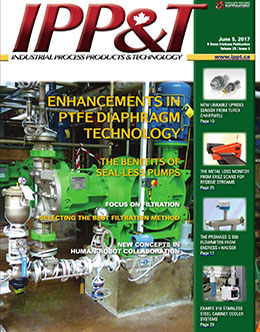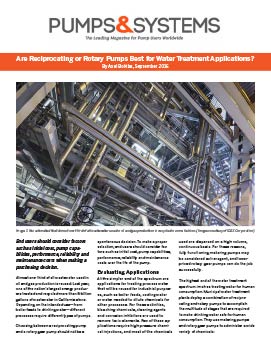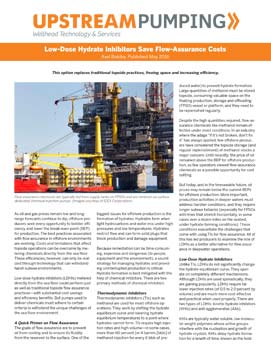Flow Control Magazine, November 2018
Not a day goes by, when almost everyone on the planet touches something made from chemicals. But chemicals can also be harmful to people and the environment, so great care must be taken to ensure that chemicals are handled properly in any manufacturing process.
Metering pumps play a key role in dosing chemicals (that are often procured and stored in high concentrations). Much like a needle that delivers medicine, a metering pump is far less expensive than the material it handles - but it must accurately deliver precise volumes every time - or problems can result. This article examines the critical role that metering pumps play in chemical dosing applications.
Industrial Process, Products & Technology Magazine, June 2017
Deepwater Oil & Gas represents some of the industry’s greatest rewards, as hundreds of billions of barrels remain sitting in known, yet untapped offshore reserves around the globe.
One requirement continues to permeate offshore planning decisions, which is the need to continuously increase efficiency to lower the Break-Even-Point for offshore production. This article examines how efficiencies can be gained in the pumps that are used to assure the flow of Oil & Gas from the seabed, to separate it on the platform, and keep the equipment clean and functioning at peak performance.
Pumps & Systems Magazine, September 2016
When it comes to industrial or municipal water treatment, there is more than one way to get the job done. The criteria used to select between a reciprocating pump and a rotary gear pump includes initial cost, pump capabilities, performance, reliability and maintenance costs over the life of the pump. This article looks at the strengths and weaknesses of each pump type to help readers select the proper pump type based on their own needs.
Upstream Pumping Magazine, May 2016
A Quick Primer on Flow Assurance:
The goals of flow assurance are to prevent oil from cooling and to ensure its fluidity from the reservoir to the surface. One of the biggest issues that must be addressed for offshore production is the formation of hydrates. Hydrates form when light hydrocarbons and water mix under high pressures and low temperatures. Hydrates not only restrict flow, but they can also form solid plugs that block production and damage equipment. Because remediation can be time consuming, expensive and dangerous (to people, equipment, and the environment), a sound strategy for managing hydrates and providing uninterrupted production is critical. This article discusses the strategies and the pumping equipment needed to effectively deliver flow assurance chemicals in offshore oil & gas environments.




